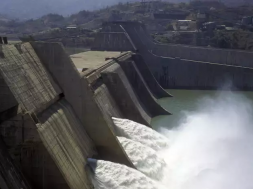
The key target set by the EV policy was to ensure that 25% of all new vehicle registrations are EVs by 2024
The Delhi government has started drafting a revised electric vehicle (EV) policy for the next three years and will hold a stakeholder consultation next week to get opinions, according to officials aware of the development.
The Delhi EV policy 2020 expires in August this year and officials said that about 86% of the policy measures and targets have been achieved so far, although no categorisation of the achievement is available.
Moreover, with a high incentive offtake, the Delhi government has disbursed around ₹154 crore as subsidies for EV adoption.
Though the policy expires in August, some of the targets have a 2025 deadline and officials said that the revised policy is only expected to extend the targets and include more aggressive measures in areas that have not been focused on till now. These areas include setting up private charging stations, electrification of commercial heavy vehicle fleets, increasing private vehicle ownership, etc., which the stakeholder consultation will focus on, an official said.
“We are going to start holding stakeholder consultations to get views from original equipment manufacturers, dealers, customers, and experts on what can be revised in the policy and how the targets can be realistically reviewed. We know that setting up private charging infrastructure needs more push,” said N Mohan, chief executive officer, EV cell.
The key target set by the EV policy was to ensure that 25% of all new vehicle registrations are EVs by 2024. As of now, about 11% of all new vehicles registered in Delhi are EVs. However, EV adoption is higher in some categories as 62% of three-wheeler goods vehicles are EVs and about 45% of four-wheeler cabs are also EVs. However, personal cars only contribute to 3% of this.
Other targets included 70% of the public transport bus fleet to be EV by 2025, induction of 8,000 pure electric buses by 2025, 100% of the delivery service fleet to be EV by 2025, and 100% of all Delhi government official fleet to be electric by 2023.
Officials said that some of the measures in the EV policy 2020 that worked include a high incentive framework for buying EVs and setting up EV charging stations. Even the tariff structure has been highly subsidised compared to other states.
“Unlike other states, we have a single-part tariff structure in Delhi where there is no fixed monthly demand charge. We only charge for the energy utilised, which has helped a lot in increasing the number of public and semi-public charging stations across the city. In other states, the fixed demand charge is up to ₹100 per KV, which may amount to up to ₹10,000 for a 100 KV station in a public place. This is not feasible in low-utilisation areas,” said Mohan.
He added that setting up the EV cell, a measure different from other states, has helped implement the policy by streamlining processes and providing operational guidelines, which brings everything related to EVs in Delhi in one place.
Officials said that since the policy was implemented in 2020, over 4,000 charging points have been set up, including around 1,500 private and semi-public points. The rest were public charging points. The transport department has also inducted 300 e-buses and is in the process of procuring 1,500 more buses by the end of the year and a total of around 8,000 buses by 2025.
Officials said that the consultation will focus on points that worked and didn’t work and what can be added to the revised policy.
Experts said that while Delhi is already leading the way in EV adoption, some areas need more focus now.
“According to recent data, trucks, and two-wheelers are responsible for over 50% of the hazardous PM 2.5 emissions in Delhi, posing a severe health hazard. While the Delhi EV policy has been successful in promoting the adoption of electric two-wheelers, the city must shift its attention towards the electrification of trucks. One promising approach is to convert the municipal and government fleet, including garbage trucks and water supply trucks, to electric. Consequently, the upcoming version of Delhi’s EV policy should prioritise aggressive electrification of trucks to combat air pollution,” said Amit Bhatt, managing director (India), International Council of Clean Transport (ICCT).
A second expert said that the Delhi EV Policy 2020 has been a successful example of how EV adoption can accelerate with the right strategies and a strong intent of the government. However, the incentives have to be slowly reduced going forward.
“Under the policy, the government has offered nearly ₹150 crore worth of incentives on EVs in the Capital. While the policy currently offers purchase incentives across different vehicle segments, continuing or slowly tapering off the purchase incentives in the next iteration of the policy will be important to avoid a rebound effect due to the abrupt removal of subsidies. The government can also ensure more affordable financing for EVs, and provide usage incentives such as parking fee exemptions and toll fee waivers to EV users. These measures can help maintain the momentum and will help the government achieve its target. Additionally, establishing green zones in sensitive and strategic locations can further help simultaneously promote EV adoption,” said Pawan Mulukutla, director-integrated transport, World Resources Institute, India.












